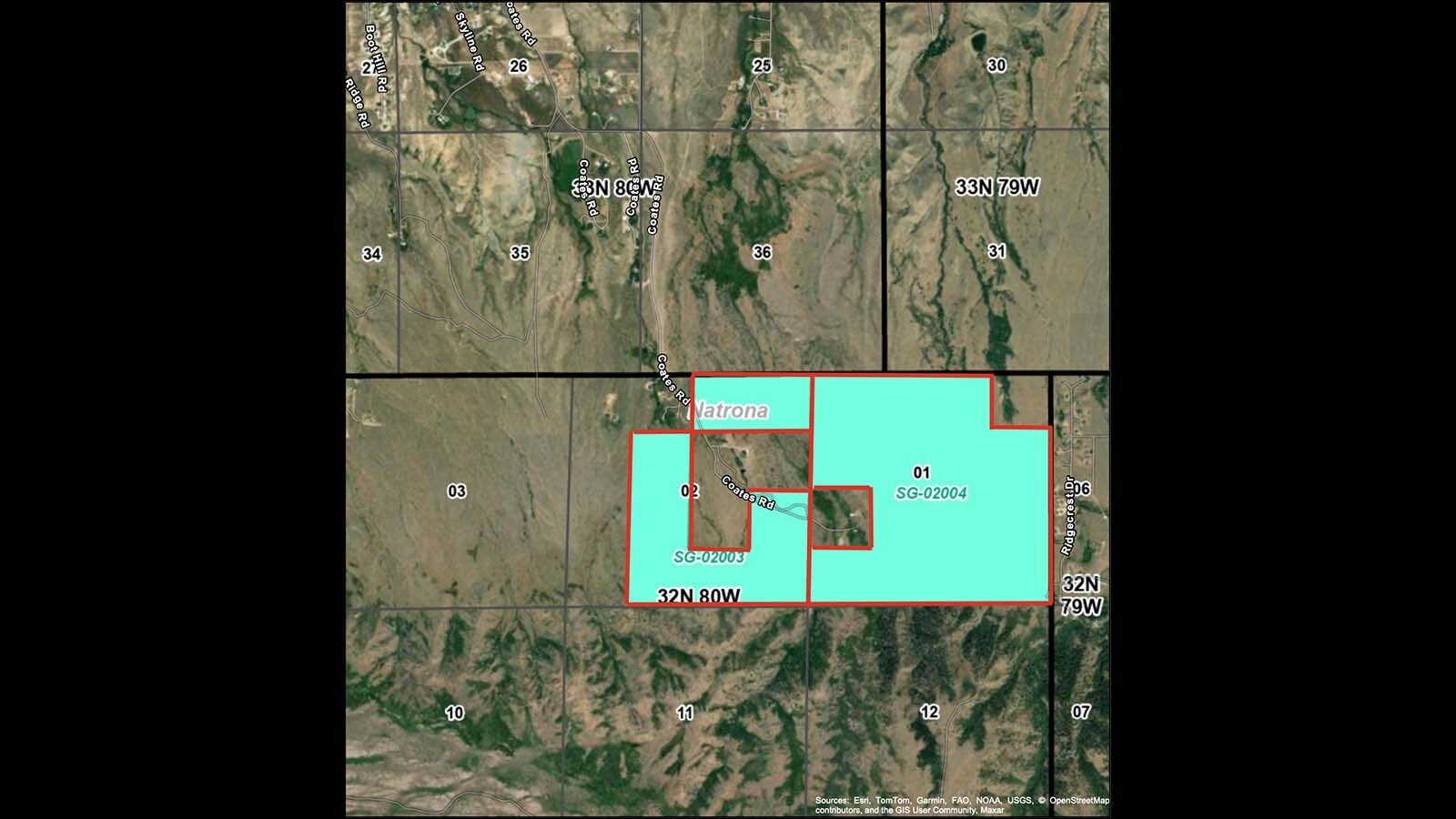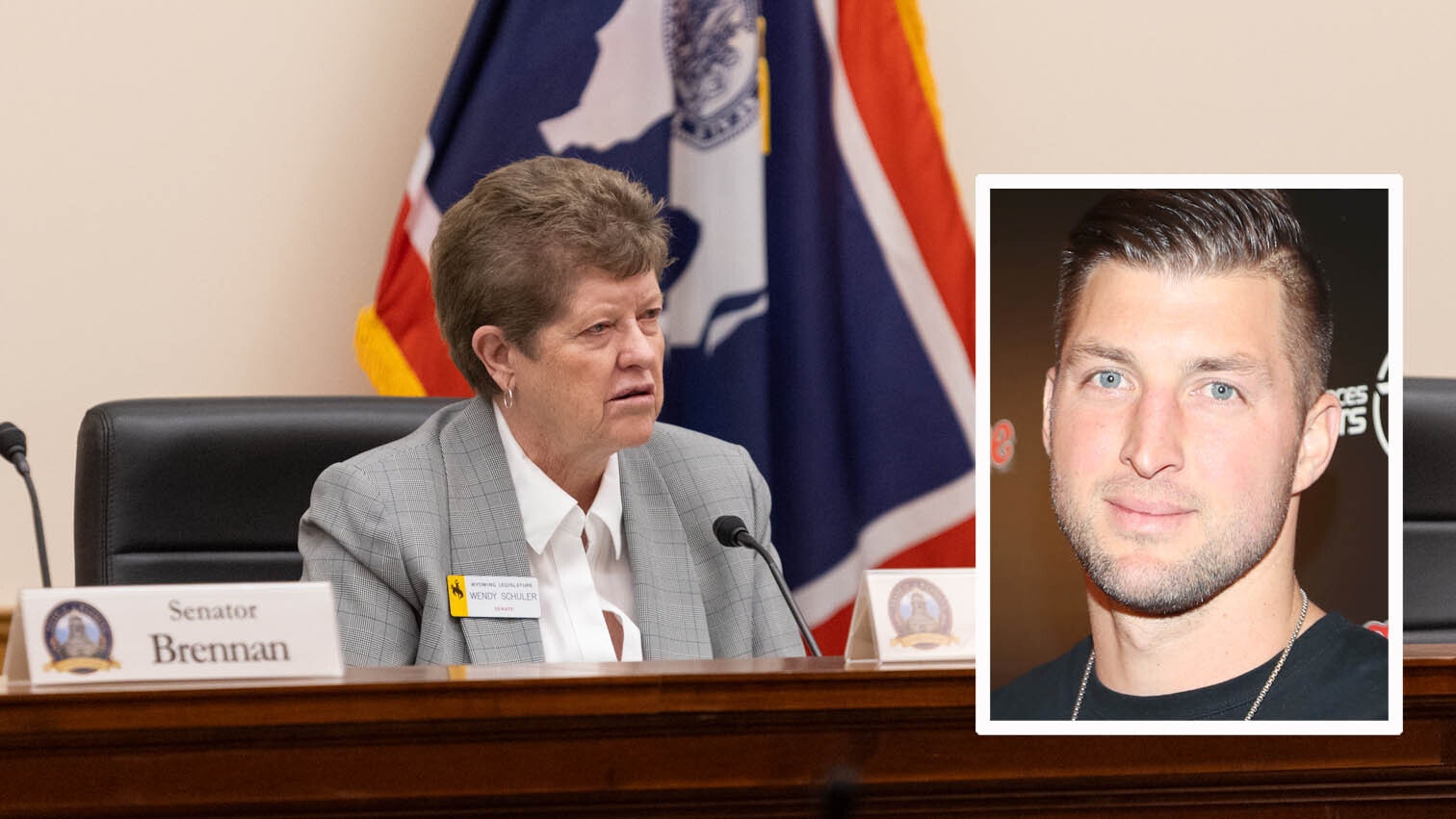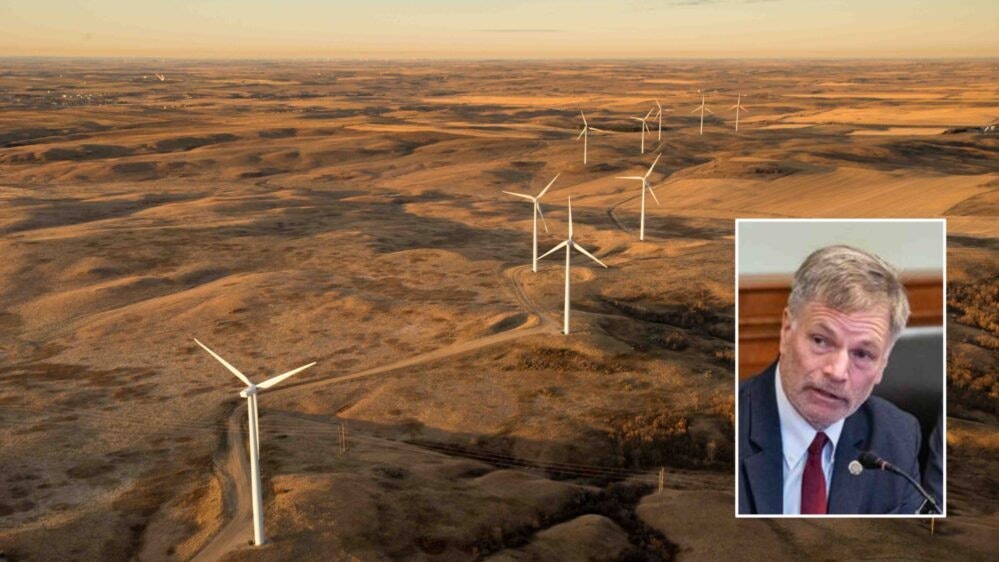The Wyoming State Board of Land Commissioners were in a familiar place Thursday, considering the renewal of two leases of state land at the base of Casper Mountain that are linked to a controversial gravel mining plan.
And just like their meeting in June, when they denied six leases in the same area by the same company, the board denied the renewal asked for by Prism Logistics.
Unlike June, when Prism’s renewal request was denied 3-1 with Gov. Mark Gordon’s abstention — this time he voted. But it didn’t matter. He and State Treasurer Curt Meier were the two “no” votes on a motion to deny Prism’s request for renewal while the three other members of the Land Board voted for denial.
Secretary of State Chuck Gray made the motion to deny renewal of Prism’s access to a total of 871 acres in sections one and two abutting the base of Casper Mountain. He was joined by Superintendent of Public Instruction Megan Degenfelder and State Auditor Kristi Racines.
“I don’t think Prism is going to be able to attain the necessary authorizations and I think that is very important when we consider the fiduciary aspects here,” Gray said.
Neither Degenfelder, Racines nor Gordon gave reasons for their votes. Meier said he was voting against denial because he saw it as his fiduciary responsibility to the state as the lands are designated to provide funding for schools in the state.
“This is going to be one of those things where it’s going to be hard to split the baby because it’s not going to survive,” Meier said. “I guess I would find that there is a great deal of support for the use of the land as it is by the general public around Casper … But I also have a situation where … I’m bound by the loyalty I have as a fiduciary and in representing the sovereign state of Wyoming.”
Earlier the board heard testimony from Prism Logistics Manager Kyle True and his attorney, Deborah Roden, as well as the chair of the Casper Mountain Preservation Alliance Caroline Griffith and the Alliance’s attorney Marci Bramlet.
Natrona County Commissioner Chairman Dave North also testified about the county’s zoning ordinance that prohibits mining in the mountain residential zone as well as an ordinance passed that prohibits heavy commercial trucks on two dozen county roads — including Coates Road which would be needed to access the parcels of state land covered in the leases.

‘Fragile’ Water Situation
Griffith testified that the two leases on state lands just south of school section 36 in Casper are just as “fragile” as the other lands in the June leases in terms of the mountain’s water drainage that supplies wells in the area.
“The headwaters for Wolf Creek, Platte, Squaw Creek and Fields Creek are all within sections one and two as are about eight houses that are all carved into areas within those sections,” she said. “So that is obviously going to limit what’s available to mine.”
Griffith also cautioned the board on a continuing concern for mountain residents about a gravel operation interrupting their water supply. She said the Alliance has put forward an alternative proposal and submitted a temporary use application to “perform a study to proactively address monetization opportunities” on the state lands and develop and encourage recreation trails.
“We have provided you with data how this may also help to address Wyoming’s out-migration of youth,” she said.
Meier told Griffith that her best option would be to let the Land Board handle it regulatory responsibilities related to the lands but go to the state legislature “and ask them to make it a state park.”
True and Roden asked the commission members to just follow the regulations that guide the Land Board and pointed out that Prism had followed the rules and was worthy of renewal of the leases.
Roden pointed out that the “right to renewal” is triggered if the lessee is proceeding in good faith to develop the leased lands and if applicable can demonstrate that the production of the material has been delayed due to the necessity of obtaining licenses, permits, or other appropriate approvals.
Renewal Recommendation
She reminded the board that their own Office of State Lands and Investments Director Stacia Berry had recommended renewal.
“In this case, Director Berry and her staff have done their thorough review, and they recommend that the leases be renewed,” Roden said. She said Prism would still be required to obtain the necessary permits from the Wyoming Department of Environmental Quality.
True told the board that his company has been pursuing the leases in “good faith” and that the gravel and rip rap at the base of the mountain would provide the state royalties.
“There are sincere passions by people who don’t understand our industry and are simply bringing up things that simply are inapplicable here,” he said. “They think that if we have these gravel pits in this specific area that the fish in the North Platte will die. They think we will destroy roads by running trucks at 20 mph … gravel roads can be maintained.”
He said his company was following the “well-regulated paths” set out by the legislature for the use of the lands where “country commissioners really have no place in regulating state minerals.”
Bramlet argued during her time before the Land Board that Prism would never benefit the state because Natrona County zoning prohibits mining in a mountain residential zone and a county ordinance bans heavy trucks on certain residential road within the county — including Coates Road.
She also said that the county can regulate the state land through zoning and that under state law regarding zoning, gravel is not a mineral.
North responded to statements by Meier questioning whether the county ordinances were put in place after Prism leased the state lands and after it announced its intentions to mine gravel.
North told the board that the zoning against mining in the mountain residential zone had been in place until 2022 and the commissioners on the board then did not understand how the revised zoning document done that year came to allow it. He also said the ordinance was restored to its original intent through a citizen effort following the rules and not by the county board.

County Truck Ordinance Defense
North said the counties ordinance on heavy trucks was due to safety issues and it applied to other roads besides Coates Road. He also told the Land Board the county was not trying to usurp the state’s ownership and that Prism has other options available.
“The county does not need control over all state land,” North said. “We don’t want it, but there are certain areas that are close proximity or need to be preserved for different reasons, and this in particular is one of those.”
North said there are other areas in the county on state land where Prism could obtain gravel and it is available off a county road.
“I can think of one location that is on state land that has granite on it that is easily accessible,” he said. “And I know that for a fact because the county has mined just down the road from that.”
Prior to the Land Board vote, members went into executive session to get a question answered that was posed by Gray on whether there was any difference in Prism’s status from June “in terms of where Prism is at in obtaining the necessary licenses and permits.”
When they came out of the executive session, Gray made his motion to deny the leases.
During the June 5 hearing in Cheyenne, the state Land Board voted 3-1 against renewing the other six Prism leases that represented Prism’s mining hopes.
Arguments then by Bramlet about the potential loss of water, declining home values and health issues for mountain residents prevailed versus the money the state would reap from Prism’s mining of gravel.
“One dollar today is sometimes better than 10 later,” she said. “But it doesn’t matter if you don’t have clean water to drink or a land on which to walk, or a home. To deplete that in the service of a purely economic goal, I believe, is not serving the greater fiduciary duty.”
The same Land Board trio voted to deny the leases, Meier voted against the denial and Gordon did not vote.
The latest Land Board action comes as a lawsuit filed by Prism in July asking for a judicial review about the Land Board’s decision not to renew his leases continues to work its way through the court process.
True has also filed suit asking for review of the ability of the Natrona County Board of Commissioners through zoning to prohibit certain uses on state property.
Dale Killingbeck can be reached at dale@cowboystatedaily.com.






